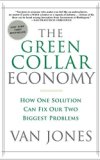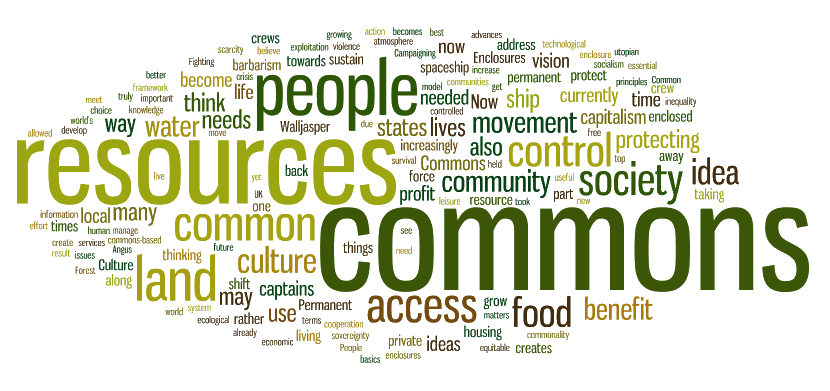New Economy Movement
New Economic Thinking
Institute for New Economic Thinking
Michael Sandel / What Money Can't Buy (Video series)
···············································································
A New Economy -- Diverse & Innovative
- GreenPolicy360, join in the development of the new field of "Eco-nomics"
···············································································
A Coalition, a Network, New Economy Models
The New Economy Coalition (NEC) is an American nonprofit organization based in Boston, Massachusetts, formerly known as the New Economics Institute. It is a network of over 100 organizations working for what it describes as the "New Economy Movement".
New Economics Institute / Via Wikipedia
The roots of the NEC lay with the Schumacher Center for a New Economics (formerly the E.F. Schumacher Society) which was founded in 1980. In 2010, the NEC partnered with the New Economics Foundation (NEF) to create a new organisation called the New Economics Institute to promote alternative economic models.
New Economics Network
The New Economics Network was created by in 2009 as a loose network of about two hundred organizations working for a 'new economy'. In a lecture for the National Council for Science and the Environment Gus Speth said the organisation wanted to create a sustainable and caring economy.
In 2013, "New Economics Institute" merged with New Economy Network to became the "New Economy Coalition".
·······························································································································
The New Economy movement is often referred to as just "the new economy". It considers that the current economic system needs to be restructured. The theory is based on the assumption that people and the planet should come first, and that it is human well-being, not economic growth, which should be prioritized. It draws on an aggregate of alternative economic thought that challenges the fundamental assumptions of mainstream neoclassical and Keynesian economics. Some of the approaches it includes a ecological economics, solidarity economy, commons, degrowth, systems thinking and Buddhist economics.
Gar Alperovitz described the New Economy movement as “... a far-ranging coming together of organizations, projects, activists, theorists and ordinary citizens committed to rebuilding the American political-economic system from the ground up." In 2009, Sarah van Gelder wrote, “The new economy is about increasing quality of life, improving health, and restoring the environment."
http://www.garalperovitz.com/2012/05/the-rise-of-the-new-economy-movement/
···································································································
Democratic Party Needs New Economic Thinking
By Joseph Stiglitz -- https://www.ineteconomics.org/perspectives/blog/stiglitz-democratic-party-needs-new-economic-thinking
- Books by Joseph Siglitz -- https://www.amazon.com/Joseph-E.-Stiglitz/e/B000APIKRK
···································································································
Resources
http://www.resilience.org/resource-detail/2353188-weaving-the-community-resilience-and-new (2015)
http://www.resilience.org/resource-detail/2353188-weaving-the-community-resilience-and-new (2015)
http://www.greenpolicy360.net/mw/images/GettingToTheNextSystem_Gus_Speth.pdf
http://www.alternet.org/story/155452/the_rise_of_the_new_economy_movement (2012)
http://www.huffingtonpost.com/gar-alperovitz/the-rise-of-the-new-econo_b_1532549.html (2012)
http://www.yesmagazine.org/new-economy/the-rise-of-the-new-economy-movement (2012)
http://www.thenation.com/article/new-economy-movement/ (2011)
················································
Eco-nomics
- Paradigm shift under discussion/development @ GreenPolicy360
················································
New Economics
○
Via Yes! Magazine - David Korten / 2001 ... Reclaiming the Commons
Via Sojourners / 2013 ... Reclaiming the Commons
○
Community-Wealth generation - Democracy Collaborative / ... Reclaiming the Commons
http://democracycollaborative.org/
Resources for practitioners and policy makers working to build community wealth and a new economy
○
How America's Largest Worker Owned Co-Op Lifts People Out of Poverty
○
2014
Gar Alperovitz (note relation to Gaylord Nelson, founder of Earth Day) - Video Keynote at the AAAS Climate Change Summit / American Association for the Advancement of Science's Summit on Climate Change Resilience and Governance
○
Next System Project - http://democracycollaborative.org/content/next-system-project
○
http://democracycollaborative.org/publications
○
Community-wealth generation focus areas:
- Democratization of Wealth
- Community Wealth Cities
- Community Wealth InfoGraphics
- Community Wealth Interviews
- Community Wealth Map
- Wealth Videos
- ○
- Anchor Institutions
- The Cleveland Model
- Community Development Corporations (CDCs)
- Community Development Financial Institutions (CDFIs)
- Land Trusts (CLTs)
- Cooperatives (Co-ops)
- Cross-Sectoral
- Employee Stock Ownership Plans (ESOPs)
- Green Economy
- Individual Wealth Building
- Individual Wealth Preservation
- Local Food Systems
- Municipal Enterprise
- New State & Local Policies
- Outside the U.S.
- Program Related Investments
- Reclaiming the Commons
- Social Enterprise
- Responsible Investing
- State Asset Building Initiatives
- State and Local Investments
- Transit Oriented Development
- University & Community Partnerships
- Worker Cooperatives
○
- Air Quality
- Alternative Agriculture
- Aquifers
- Atmosphere
- Biodiversity
- City-County Governments
- Clean Water
- Climate Policy
- Earth
- Eco-nomics
- Ecological Economics
- Ecology Studies
- Economic Development
- Economics
- Environmental Protection
- Environmental Security
- EOS eco Operating System
- Food
- Forests
- Green Best Practices
- Green Banking
- Green Business
- Green Infrastructure
- Green Politics
- Green Values
- Health
- Initiatives
- Labor Issues
- Labor Unions
- Natural Resources
- Networking
- New Economy
- Oceans
- Permaculture
- Resilience
- Rights of Nature
- Sustainability Policies
- Toxics and Pollution



